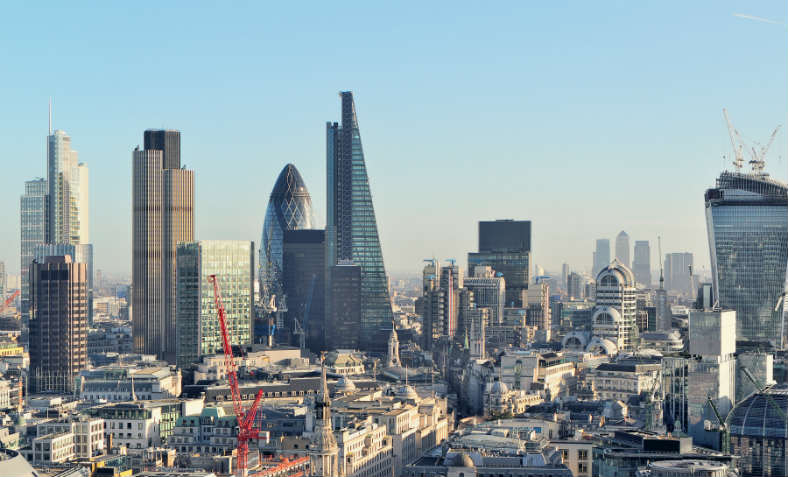 The City of London in December 2013. Photo: Kloniwotski.
The City of London in December 2013. Photo: Kloniwotski.
Falling wages in a growing economy and ever increasing pay for bosses show a system undeterred by crisis in consolidating wealth at the top of society, argues Josh Newman
Over 10 years on from the huge capitalist crash of 2007-2008 the devastating gap between workers and the very rich is only getting bigger. Workers’ real wages are still falling while the pay of chief officers of big companies is growing faster than ever.
Homelessness figures are rising, death rates are increasing, and life expectancy has stalled. Big capital has exhibited no change in its rapacious behaviour as the austerity rationalised by the economic crash continues to cripple the poor and working class while bosses of major companies get richer year on year. And why should we be surprised?
The two highest paid CEOs in the UK took home over £80million between them in their basic pay packet last year. This should be horrifying to anyone who does not have a vested interest in making the already very rich much richer and most people poorer. This sort of astronomical figure is not even supported by many people, such as shareholders and investors, who exist in this world of engorged pay. And yet it continues.
In Philip Hammond’s spring budget statement from March he made it clear that the Conservatives’ priority was still business. We should know that this does not mean greater flourishing for the people who work at the bottom of major corporations but more money changing hands amongst the people at the top.
That the Tories have not even voiced disapproval over the latest executive pay announcements and Theresa May’s fantastical promises to tackle the free-soaring pay of major company bosses have been long swept under the carpet, show how closely their interests and fortunes still align with the financial forces in the City of London.
Social mobility is more or less non-existent in this country so obviously the hands between which this all of this money is moving remain few and of the same genetic material. Almost as though our society was run on the basis of deeply entrenched class division.
Let’s imagine this was not part of a consistent trend for a moment and simply look at the difference between 2016 and 2017. Pay rose on average for company bosses by 11% as compared to a 2% average rise for workers. Inflation between 2016 and 2017 was 3.59% in the UK. So the very basic situation is that between these two years workers’ pay effectively decreased significantly and bosses’ pay rose quite considerably.
This not only means that that bosses were earning on average 128 times as much as their employees in 2016 (which is clearly insane enough) but that they were earning around 145 times as much in 2017.
What justification can there possibly be for such statistics? It is inconceivable that the genuine productivity of bosses increased by that much in this time frame, so pay is obviously not linked to useful productivity. This mirrors the disconnect at the macro-ideological level between the capitalist mode of production and people’s needs. The fortunes of huge company managers are clearly decoupled from the real functioning of the economy in a way that most people simply cannot afford to be.
Clearly, no one needs that much money. No individual requires a fraction of the amount that major company bosses are paid to live comfortably. However, there are many people in full time, productive employment who do not have enough money to live in security.
Similarly to how capitalist production carries on despite resting on the contradictory condition of permanent growth in a world with finite resources, this crippling gap in wealth continues to widen despite the levels of poverty unheard of in decades.
Danny Dorling talks about the imminence of a state of peak inequality in the UK. He describes this as a situation in which society cannot continue to function without major wealth redistribution because, after so long of siphoning wealth upwards whilst finding different ways to keep countless people at barely subsistence level or lower, there simply won’t be anywhere else to get the resources to carry on.
Dorling points out that death rates are higher than they have been in previous years, and life expectancy has stopped rising. This is demonstrably due in part to the critical underfunding and privatisation of the NHS. Statistics such as these are unprecedented outside of war time.
Of course, in 1945 this was followed by a massive Labour victory and the creation of the NHS in a crippled post-war economy. This shows us that extreme conditions can produce major change in this country, and that such change can come from the left. But statistics like these also show us that we cannot sit back; the ruling class is on a longstanding project to consolidate wealth at the top of society and will not stop even in the fact of the most extreme crises.
Britain’s GDP returned to pre-2007 size in 2013, yet last year the UK was the only rich economy in the Europe in which economic growth has co-existed with wage deflation. Clearly our society is structured in such a way that the crises inherent in the structure of capitalism leave the wealthiest all but unharmed while working people bear the brunt of the damage.
It is not enough to point out the inherent instability of the capitalist mode of production. Those who hold the real power over the economy can still benefit in periods of crisis, and clearly have little concern if this comes at the expense of wrecking of living standards for the mass of people. Fundamental change to the system is needed and at this stage of unimaginable inequality, it’s a very immediate need.

